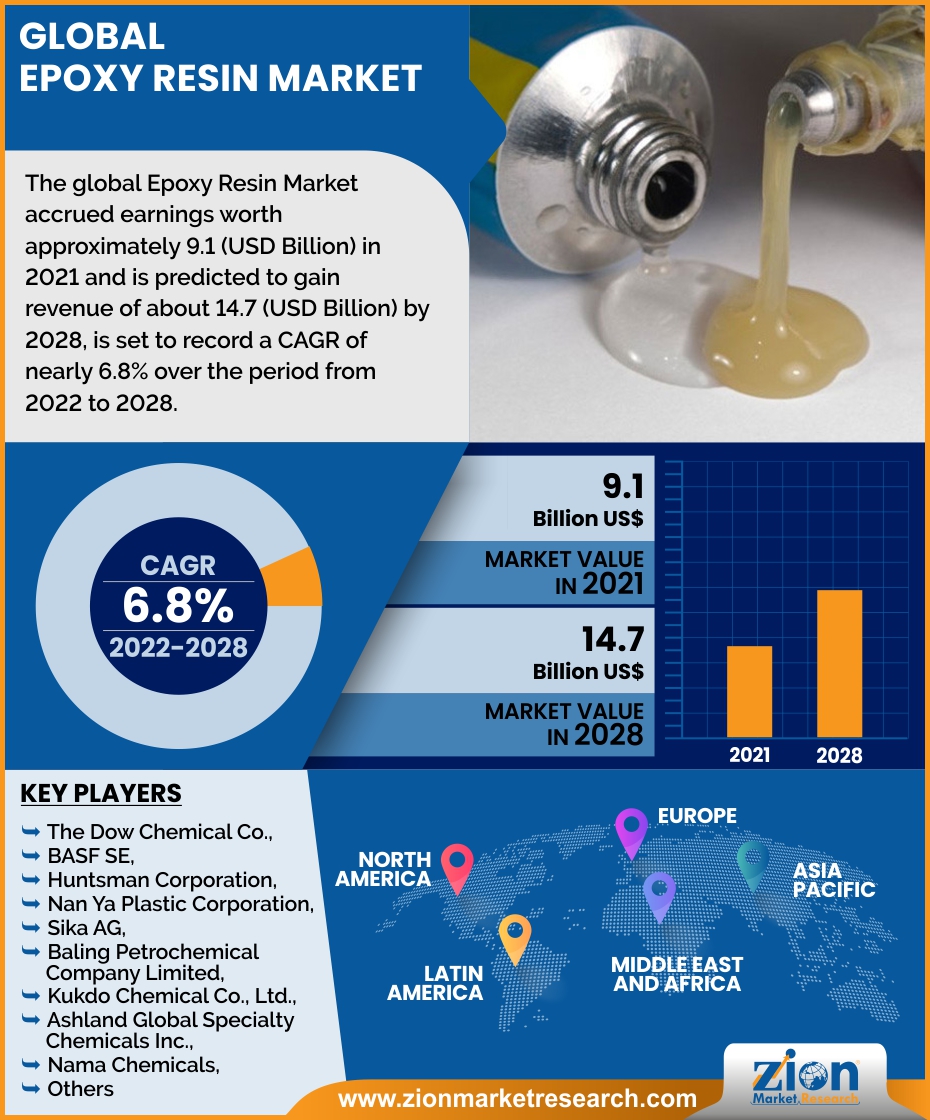Epoxy resin is a type of synthetic polymer that has become increasingly popular in recent years due to its many benefits and versatile applications. This powerful material is created by mixing two components – a resin and a hardener – which react together to form a strong, durable material. In this blog post, we will explore the benefits of epoxy resin and examine the growth factors that are driving its increasing use in a variety of industries.

Benefits of Epoxy Resin
- Strength and Durability: Epoxy resin is an incredibly strong and durable material. It has excellent adhesive properties and can bond with a wide range of materials, including wood, metal, and plastic. This makes it ideal for use in a variety of applications, including construction, manufacturing, and marine industries.
- Chemical Resistance: Epoxy resin is resistant to many chemicals, including acids, alkalis, and solvents. This makes it an ideal material for use in chemical processing plants, laboratories, and other environments where chemical exposure is a concern.
- Waterproofing: Epoxy resin is impervious to water, making it an ideal choice for use in marine applications, as well as in wet environments. This waterproofing property also makes it a popular choice for use in the construction of swimming pools, water tanks, and other water-related structures.
- Versatility: Epoxy resin can be easily modified to suit different applications. For example, pigments can be added for color, fillers for added strength, and thickeners for different viscosities. This versatility makes it a popular choice for use in a wide range of industries.
- Aesthetic Appeal: Epoxy resin can be used to create a variety of aesthetically pleasing finishes. It can be polished to a high shine, or it can be textured to create a non-slip surface. This makes it a popular choice for use in decorative applications, such as flooring, countertops, and art.
Growth Factors for Epoxy Resin
- Increasing Demand in Construction: The construction industry is a major user of epoxy resin. It is used in the construction of buildings, bridges, and other structures due to its strength, durability, and waterproofing properties. As the construction industry continues to grow, the demand for epoxy resin is also increasing.
- Growing Use in Electronics: Epoxy resin is commonly used in the electronics industry due to its excellent insulating properties. It is used to encapsulate electronic components to protect them from moisture, dust, and other contaminants. As the demand for electronics continues to grow, the use of epoxy resin in this industry is also increasing.
- Advancements in Manufacturing: Advances in manufacturing technology have made it easier to produce epoxy resin products in large quantities. This has led to increased availability and reduced costs, making it more accessible to a wider range of industries.
- Increasing Use in Art: Epoxy resin is also becoming increasingly popular in the art world. It can be used to create a variety of unique finishes and effects, such as three-dimensional textures and high-gloss finishes. As more artists discover the benefits of using epoxy resin, the demand for this material in the art industry is also growing.
Epoxy Resin Challenges
While epoxy resin offers many benefits and has a wide range of applications, it also presents some challenges that users should be aware of. In this section, we will discuss some of the challenges associated with epoxy resin.
- Health and Safety Concerns: Epoxy resin can be hazardous to human health if it is not handled and used properly. The resin and hardener contain chemicals that can cause skin irritation, eye damage, and respiratory problems. It is important to wear appropriate personal protective equipment, such as gloves, goggles, and a respirator, when working with epoxy resin.
- Environmental Concerns: Epoxy resin can have a negative impact on the environment if it is not disposed of properly. It is important to follow local regulations and guidelines for the disposal of epoxy resin products.
- Cost: Epoxy resin can be more expensive than other materials, such as traditional adhesives or sealants. This can make it less accessible to small businesses and individuals with limited budgets.
- Application Challenges: Epoxy resin can be difficult to apply and requires careful mixing and application techniques to achieve the desired results. This can be a challenge for novice users or those without experience in working with this material.
- Curing Time: Epoxy resin typically requires a significant amount of time to cure fully, which can be a disadvantage in time-sensitive applications. The curing time can also be affected by factors such as temperature and humidity, which can make it challenging to achieve consistent results.
- Yellowing: Over time, epoxy resin can yellow or become discolored, particularly when exposed to sunlight or UV radiation. This can be a concern for applications where aesthetics are important, such as in art or decorative applications.
Conclusion
Epoxy resin is a versatile and durable material that offers many benefits across a wide range of industries. Its strength, durability, chemical resistance, and waterproofing properties make it an ideal choice for use in construction, manufacturing, electronics, and art. As the demand for epoxy resin continues to grow, we can expect to see increased innovation and advancements in the production and application of this material.
